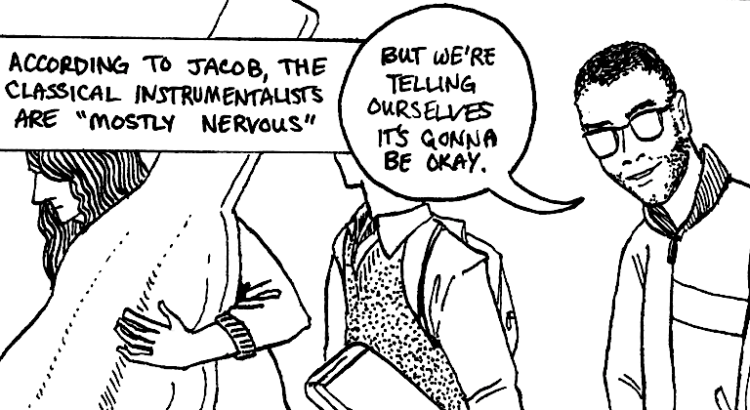 What “normal” aspect of life on campus do you miss the most? Game days? Studying in Hatcher? One of the things that I miss the most about a “normal” school year at the university is the vast array of live performances. The COVID-19 pandemic led to the closure of concert halls, theaters, and opera houses across the country. Those on campus were not excluded, and it’s been strange to walk past Hill Auditorium and think about its emptiness.
What “normal” aspect of life on campus do you miss the most? Game days? Studying in Hatcher? One of the things that I miss the most about a “normal” school year at the university is the vast array of live performances. The COVID-19 pandemic led to the closure of concert halls, theaters, and opera houses across the country. Those on campus were not excluded, and it’s been strange to walk past Hill Auditorium and think about its emptiness.
2020 was a tumultuous year. Still, there were plenty of inspiring performances throughout it that demonstrated artists’ dedication to keeping their art forms going. Shutdowns sparked a flood of videos across the internet that showcased determined singers and musicians, both amateur and professional, performing from their homes. The shift towards online was not only encouraged but necessary as online viewers became the only audience. With grace and determination, live performances became synonymous with livestream, a moving reminder of the flexibility and unity needed to survive trying times.
It only seemed fair to end 2020 by listening to the art that I have greatly admired throughout the pandemic. Since the start of my college career, I’ve been grateful to Arts at Michigan, the University Musical Society (UMS), and friends I met on campus for introducing me to the magic that is live classical music in the form of professional quartets, orchestras, and more. I remember seeing the Takács Quartet with clarinetist Anthony McGill, for example, at the Rackham auditorium in April of my freshman year. Yesterday, I watched and listened to the Takács Quartet again, only this time through a special reprise of a UMS digital presentation that was available for streaming through December 31st. Listening to the emotional drama unfold in Price’s String Quartet No. 2 in a minor (Mvt. ii) and the dizzying array of timbres in Debussy’s String Quartet in g minor (Mvts. iii, iv) seemed like a fitting end to 2020. Whatever next year brings, I wish you health, happiness, and *hopefully* a live concert or two.
Check out the UMS website to read more about digital presentations being offered this season.




 Photo by Julia Rose Lawson.
Photo by Julia Rose Lawson. 